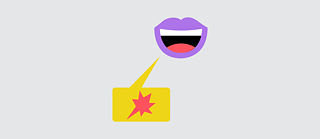Word! The Language Column
Everything must go! The long war on foreign words

What is it that irks those who feel compelled to protect the German language against foreign words? Henning Lobin retraces the history of nationalistic linguistic crusades from the Baroque to the present day and age.
By Henning Lobin
Anglicisms, such as the use of sales for Schlussverkauf, are inundating modern-day German. There’s nothing unusual about borrowings from foreign languages, they’re actually a characteristic feature of any evolving language. But these linguistic incursions have been a bone of contention for a long time in German.
Linguistic patriotism in the German Baroque
It all began four hundred years ago in the Baroque era, when the Fruchtbringende Gesellschaft or “Fruitbearing Society”, the first German literary association, was founded in Weimar in 1617. Inspired by the Accademia della Crusca down in Florence, a handful of patriotically-minded German noblemen got together to practise vernacular German in poetry and equip the nascent language with the superior linguistic capabilities of Latin and French for wider supra-regional use. The Fruchtbringende Gesellschaft and a few other language societies soon began proposing German terms to supplant mostly Latinate loanwords: the suggestions included some less convincing coinages, like Tageleuchter (literally, “day-glower”) for Fenster (window) and Zitterweh (“shiver-ache”) for Fieber (fever), as well as some more compelling compounds that did bear fruit, like Durchmesser (lit., “cross-gauge”) for Diameter, Bruchstück (“broken piece”) for Fragment and Briefwechsel (“exchange of letters”) for Korrespondenz.In assertively championing the merits of Modern High German, the Baroque literary/linguistic societies had a considerable influence on its emergence as a written language. It subsequently spread and became established as a supra-regional compromise between the various German dialects, especially for printed matter of all kinds to be widely distributed in the Germanophone world. By the time the first German nation state was constituted – in the form of the German Empire – in 1871, Modern High German was pretty much “all set” to serve as its standard language. The citizenry had already begun using the literary language of Goethe and Schiller as their spoken language, too. This was the beginning of what we now call Hochdeutsch, or “High German”, which is spoken, written and understood everywhere in the German-speaking world, generally with only slight regional differences.
Nationalistic and racist efforts to Germanize German
In 1871, the German states joined up to form the German Empire after the victorious war against France – reason enough at the time to ban the myriad French words that had gained currency in the German language. The linguistic patriotism of the Baroque morphed into a form of linguistic nationalism with the establishment in 1885 of the Allgemeiner Deutscher Sprachverein (General Association for the German Language), which orchestrated the development of Germany's national language under Kaiser Wilhelm II. The association proved particularly effective at Germanizing terminology in one domain after another, coining a great many words that are still used as a matter of course today. In the railway sector, for example, perron became Bahnsteig (platform), coupé became Abteil (compartment) and billet became Fahrkarte (ticket). In gastronomy, Speisekarte supplanted menu, though Rippenschnitte and Weißeingemachte didn’t quite win out over Kotelett (chop/cutlet) and Frikassee (fricassee), respectively.The association took an inglorious turn during the Nazi era, as its linguistic nationalism morphed into virulent linguistic racism. “The spirit of a race manifests itself in historical reality as language,” wrote association functionary Georg Schmidt-Rohr in 1935, and the Sprachverein went as far as to describe itself as “the Sturmabteilung of our mother tongue”.
The German Language Association and its index of Anglicisms
Modern-day Germany has an organization crusading against the use of foreign terms too – nowadays, they’re words borrowed from English. But the Verein Deutsche Sprache (German Language Association, est. 1997) doesn’t seek merely to replace individual words: its “Index of Anglicisms” proposes thousands of German substitutes (and plenty of Latinisms, too) for English words used in present-day German. Some of the suggestions make sense. And many have been established for a long time already anyway, such as Nachhaltigkeit for sustainability. Others, however, require a hint or two to make sense of. Who’d have guessed that Menschenkörperaustauschtreff (lit. “human body exchange club”) means a good old swinger club?Criticism of foreign and loanwords always lies somewhere along the spectrum between a legitimate interest in making one’s own language more capable and comprehensible, on the one hand, and a blanket rejection of outside linguistic influences. Then again, there’s no denying the different shades of meaning between many a foreign word and their putative equivalents in our native language, which is why we still need them. They can only be dispensed with to produce technical jargon that has no nuances, no added value.
Word! The Language Column
Our column “Word!” appears every two weeks. It is dedicated to language – as a cultural and social phenomenon. How does language develop, what attitude do authors have towards “their” language, how does language shape a society? – Changing columnists – people with a professional or other connection to language – follow their personal topics for six consecutive issues.